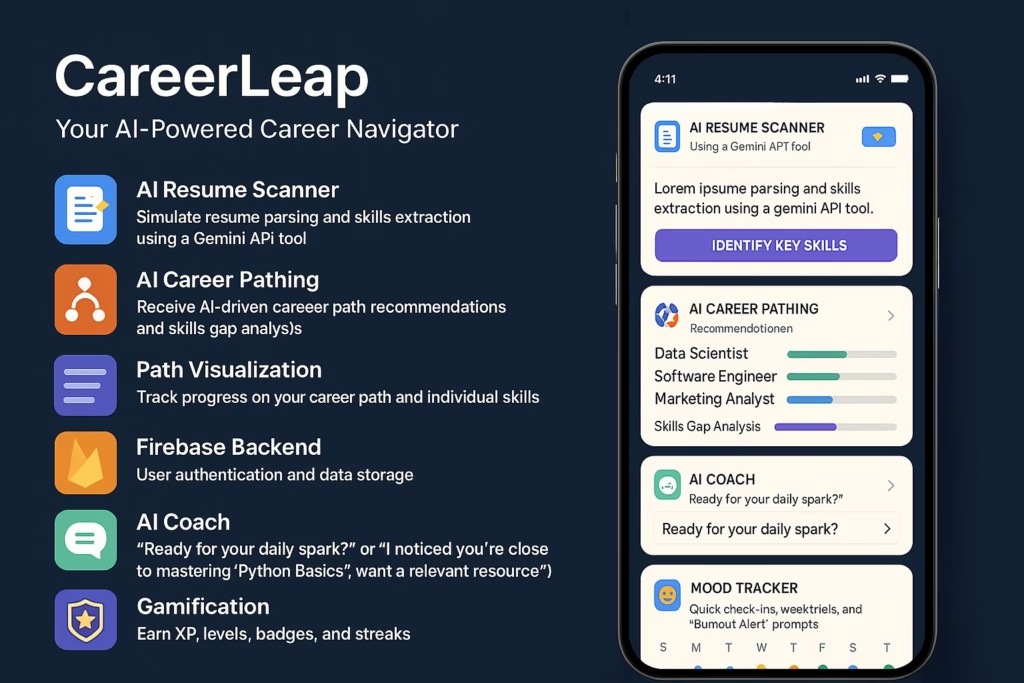A Day in the Life of a Googler: Exploring Different Roles and Teams

The name “Google” evokes images of innovation, cutting-edge technology, and a unique work culture. But what does a typical day truly look like for a Googler? The reality is that “Google” isn’t a monolith; it’s a vast ecosystem comprising thousands of individuals in diverse roles, each contributing to the company’s mission in unique ways. From the complex algorithms crafted by Software Engineers to the strategic vision set by Product Managers and the compelling narratives built by Marketing Managers, the experience of a Googler is deeply tied to their specific team and function. This article offers a glimpse into the daily lives of three distinct professionals at Google, exploring their responsibilities, challenges, and the collaborative environment that defines working at Google.

Meet Our Googlers
To paint a realistic picture, we’ll hear from:
- Alex Chen, a Software Engineer on the Google Cloud Platform team.
- Priya Sharma, a Product Manager for Google Maps.
- Ben Carter, a Marketing Manager for Google Pixel devices.
1. Alex Chen: Engineering the Future of Cloud
Alex starts his day around 8:30 AM, grabbing a coffee and breakfast from one of Google’s renowned cafes before heading to his workspace in the Mountain View campus. As a Software Engineer (SWE) specializing in distributed systems for Google Cloud Platform (GCP), Alex’s primary responsibility is ensuring the reliability, scalability, and performance of core GCP services. The tech industry, especially cloud computing, demands constant evolution, making the role of a Google engineer dynamic.

“My morning usually kicks off with a quick check of system monitoring dashboards,” Alex explains. “We’re looking for any anomalies or performance degradation overnight. Then, it’s time for our team’s daily stand-up meeting.” This brief meeting allows the team to sync on progress, discuss roadblocks, and plan the day’s tasks. Collaboration is key; Google fosters an environment where engineers actively share knowledge.
After the stand-up, Alex dives into coding. Today, he’s working on optimizing a data ingestion pipeline for a new GCP feature. This involves writing clean, efficient, and well-documented C++ code, running unit tests, and performing code reviews for his colleagues. “Code reviews are a huge part of our process,” Alex notes. “It’s not just about finding bugs; it’s about sharing best practices, improving code quality collectively, and learning from each other. It’s a core part of the Google engineering culture.”
Lunch is often a social affair. Alex might join colleagues at one of the many cafes, discussing everything from technical challenges to weekend plans. Google’s emphasis on creating a vibrant campus life makes these interactions valuable for team bonding and informal problem-solving. The proximity to other smart, motivated individuals within the tech industry is often cited as a major perk of working at Google.
The afternoon might involve a design meeting for an upcoming project, where Alex collaborates with other engineers, product managers, and even site reliability engineers (SREs) to architect a new system. “We might spend hours debating the best approach for data consistency or network latency,” he says. “It’s challenging but incredibly rewarding when you land on an elegant solution.” Alex also dedicates time to professional development, perhaps exploring a new Google technology or attending an internal tech talk.
His day typically wraps up around 5:30 or 6:00 PM. While the hours can sometimes extend, especially during critical project phases, Google promotes a balance. Alex emphasizes the importance of unplugging. “You need to recharge to be effective,” he states. “The work is demanding, but the support systems and the culture of respect for personal time are definitely there.” Being a Google software engineer means being part of a continuous cycle of innovation, problem-solving, and collaborative development within the fast-paced tech industry.
2. Priya Sharma: Shaping the Future of Navigation
Priya Sharma, a Product Manager (PM) for Google Maps, operates at the intersection of technology, business, and user needs. Her role is crucial in defining the ‘what’ and ‘why’ behind the features users interact with daily. Priya’s day begins slightly earlier, around 8:00 AM, often with a review of user feedback, market trends, and competitor analysis related to mapping and navigation.

“My primary goal is to ensure Google Maps continues to be the most helpful and intuitive navigation tool globally,” Priya shares. “This means deeply understanding our users – their pain points, their aspirations, and how they interact with the world around them.” Her morning might involve analyzing data from recent feature launches or reviewing user research reports. Understanding the user is paramount in product management at Google.
By 9:30 AM, Priya is usually in meetings. Today, she has a sync with her engineering team to discuss the technical feasibility of a proposed new feature for live traffic prediction. “We’re exploring leveraging new ML models,” she explains. “My job is to present the user problem and the desired outcome clearly, while the engineers help define the technical path.” This cross-functional collaboration is central to a Google PM’s life.
Following that, Priya attends a product strategy session with stakeholders from Design, Marketing, and Research. They’re brainstorming ideas for the next iteration of Google Maps’ augmented reality (AR) features. “It’s about aligning everyone on a shared vision,” Priya says. “We need to consider the user experience, the technical complexity, the market opportunity, and how we’ll communicate the value – that’s where marketing collaboration comes in.” This holistic view is essential for successful product development in the competitive tech industry.
Lunch might be spent discussing potential product partnerships or simply catching up with colleagues from different product areas. Google’s vast array of internal expertise provides ample learning opportunities.
The afternoon is often dedicated to writing Product Requirement Documents (PRDs) or refining user stories for the development backlog. She might also meet with the UX design team to review wireframes and prototypes for upcoming features, ensuring they align with the product vision and user needs. “User experience is paramount,” Priya emphasizes. “Even the most technically brilliant feature will fail if it’s not intuitive and delightful to use.”
Priya also engages with the marketing team to plan the launch strategy for an upcoming update. “We work closely to define the target audience, key messaging, and promotional channels. How do we tell the story of this new feature effectively? That’s where marketing expertise is invaluable,” she notes. Her role requires a blend of analytical thinking, strategic planning, and strong communication skills, making it a challenging yet fulfilling position within Google Careers.
Her workday usually concludes around 6:00 PM, though sometimes late-night calls are necessary for coordinating with teams in different time zones. Priya highlights the rewarding aspect of seeing tangible impact. “When you see millions of people using a feature you helped bring to life, navigating their world with the help of something you built – that’s incredibly motivating.” Her experience as a Google product manager underscores the importance of user-centricity and cross-functional teamwork.
3. Ben Carter: Driving Innovation in Consumer Tech Marketing
Ben Carter, a Marketing Manager focused on the Google Pixel smartphone line, thrives in the dynamic world of consumer technology marketing. His role involves crafting strategies to connect Google’s innovative products with the right audiences. Ben’s day typically starts at 9:00 AM, reviewing campaign performance metrics, industry news, and internal updates related to product development.

“My core mission is to build excitement and drive adoption for Pixel devices,” Ben explains. “This means understanding the market landscape, identifying unique selling propositions, and developing compelling campaigns that resonate with consumers.” A significant part of his morning involves analyzing data – sales figures, website traffic, social media engagement, and ad performance – to gauge the effectiveness of ongoing marketing efforts.
A key part of Ben’s role involves intense collaboration. Around 10:00 AM, he has a meeting with the Product team to get the latest updates on upcoming Pixel hardware and software features. “Understanding the product’s capabilities and roadmap is fundamental,” Ben stresses. “How can I market something if I don’t fully grasp its benefits and differentiators?” This collaboration ensures marketing strategies are aligned with product reality.
Next, Ben joins a creative agency brainstorming session for a new campaign highlighting Pixel’s camera technology. “Marketing at Google isn’t just about data; it’s also about creativity and storytelling,” he remarks. “We need to capture the magic of the product in a way that connects emotionally with people.” This session involves discussing campaign concepts, target audience segments, and potential creative directions.
Lunch might involve catching up with colleagues from the sales team to understand channel performance or discussing competitive strategies with peers in the tech industry. The energy and intellectual curiosity prevalent throughout Google are palpable.
The afternoon often includes refining marketing plans, developing creative briefs for various channels (digital ads, social media, video content, PR), and working with the analytics team to track campaign ROI. Ben might also spend time researching emerging marketing trends and technologies. “The marketing landscape is constantly shifting, especially in the tech world,” he says. “Staying ahead requires continuous learning and experimentation.”
Ben also collaborates closely with the Google Store team and retail partners to ensure seamless execution of promotional activities. “Ensuring consistency across all touchpoints, from online advertising to in-store displays, is critical for brand integrity,” he notes. His role requires a blend of analytical rigor, creative flair, and strong interpersonal skills, making it a challenging but highly rewarding aspect of Google Careers.
Ben usually finishes his workday around 6:00 PM. He finds immense satisfaction in seeing a product he helped market reach consumers and enhance their lives. “There’s a unique thrill in launching a product at Google,” Ben concludes. “You’re part of something big, influencing how people experience technology.” His perspective highlights the critical role of marketing in translating technological innovation into consumer value.
The Google Work Culture: Common Threads
While Alex, Priya, and Ben work in vastly different domains – software engineering, product management, and marketing – several common threads define the Google experience:
- Collaboration is King: Whether it’s an engineering team reviewing code, a PM aligning stakeholders, or a marketer brainstorming with creatives, collaboration is embedded in Google’s DNA. Effective communication and teamwork are essential skills for any Google employee.
- Data-Driven Decision Making: From optimizing algorithms to refining marketing campaigns and understanding user behavior, data analysis informs decisions across all roles. Googlers are expected to leverage data effectively.
- Focus on Impact and Scale: Google operates at a global scale, and its employees are driven by the opportunity to create products and services that impact billions of users. This focus on meaningful impact is a significant motivator.
- Culture of Innovation: Whether through formal programs like 20% time (allowing engineers to work on passion projects) or informal brainstorming sessions, Google encourages experimentation and pushing boundaries. This spirit fuels the continuous innovation seen across its product portfolio.
- Continuous Learning: The tech industry evolves rapidly. Google invests heavily in employee development through internal training, workshops, access to online courses, and opportunities to learn from world-class experts. Lifelong learning is not just encouraged; it’s essential for career growth at Google.
- Emphasis on User Experience: Regardless of the role, there’s a shared understanding that the end-user experience is paramount. Whether it’s clean code, intuitive product design, or resonant marketing, user satisfaction drives many decisions.
- Diverse and Inclusive Environment: Google actively strives to build diverse teams and foster an inclusive culture where everyone feels valued and respected. This diversity of thought fuels creativity and better problem-solving.
Navigating Your Google Career Path
The diverse roles at Google, represented by Alex, Priya, and Ben, illustrate the wide spectrum of opportunities available. Aspiring Googlers often wonder how to best prepare themselves.
- Build Foundational Skills: Develop strong technical skills if you aim for engineering roles, sharp analytical and strategic thinking for product management, and a blend of creativity and data analysis for marketing.
- Seek Impactful Projects: Whether in academic settings, internships, or previous jobs, highlight projects where you solved complex problems, collaborated effectively, worked with data, and made a measurable impact.
- Understand Google’s Products: Familiarize yourself with Google’s diverse offerings – Search, Cloud, Maps, Android, Pixel, etc. Understand their value propositions and the underlying technologies or market strategies.
- Cultivate Soft Skills: Communication, problem-solving, teamwork, adaptability, and a passion for learning are universally valued. Google emphasizes not just technical prowess but also how individuals work within a team and contribute to the culture.
- Network and Learn: Engage with content from Google Careers, attend virtual or in-person events if possible, and connect with Googlers to gain deeper insights into specific roles and teams.
- Be Prepared for Interviews: Google’s interview process is rigorous, often involving behavioral questions, technical assessments, and hypothetical problem-solving scenarios tailored to the specific role. Practice articulating your thought process clearly.
- Stay Curious: The tech industry is constantly evolving. A genuine curiosity and a drive to learn new things are crucial for thriving in Google’s innovative environment.
Conclusion: More Than Just a Job
A “day in the life” at Google is multifaceted, shaped significantly by the specific role, team, and project. Alex, Priya, and Ben represent just a fraction of the talent and diversity within the company. While the specifics differ, the underlying themes of collaboration, innovation, data-driven insights, user focus, and continuous learning are constants. Working at Google is often described as more than just a job; it’s an opportunity to contribute to products that shape how the world accesses information and interacts with technology, all within a supportive and intellectually stimulating environment. The journey within Google Careers is one of constant growth, challenge, and the potential for significant impact in the ever-evolving tech landscape.
- Stop Preparing for the Google Interview of 2020. Here’s What Changed.
- We Asked 100 Google Engineers How They Use Gemini: Here’s What We Learned
- Why Your Next Promotion Might Depend on Your AI Literacy (Not Your Code)
- From Marketing to Machine Learning: How One Googler Reinvented Their Career
- A Tuesday at Google: Why Our Offices Are Buzzing Again
Frequently Asked Questions
What is the typical work culture like at Google?
Google’s work culture is often characterized by collaboration, innovation, data-driven decision-making, and a strong emphasis on employee well-being and development. It encourages open communication, diverse perspectives, and provides numerous perks and resources to support employees both professionally and personally.
What skills are most important for a Software Engineer at Google?
Key skills include strong proficiency in programming languages (like C++, Java, Python), expertise in data structures and algorithms, experience with distributed systems, problem-solving abilities, debugging skills, and effective collaboration and communication for code reviews and team projects.
What does a Product Manager do at Google?
A Google Product Manager defines the product vision and strategy, translates user needs into product requirements, works closely with engineering and design teams to build features, analyzes market trends and user data, and collaborates with marketing and sales for successful product launches. They act as the bridge between technical teams and the market.
How does marketing work at Google for products like Pixel?
Google Marketing Managers develop data-driven strategies to promote products. This involves market research, identifying target audiences, creating compelling campaigns across various channels (digital, video, social), analyzing campaign performance, collaborating with creative agencies and product teams, and ensuring brand consistency. Creativity and analytical skills are vital.
Is it difficult to get hired at Google?
Yes, Google is known for its highly competitive hiring process. Candidates typically need strong technical skills (for relevant roles), excellent problem-solving abilities, experience demonstrating impact, and good communication skills. Preparation and practice for interviews are crucial for success.
Does Google offer opportunities for career growth and learning?
Absolutely. Google places a significant emphasis on employee development, offering extensive internal training programs, access to learning resources, mentorship opportunities, and clear pathways for career progression. Employees are encouraged to continuously learn and grow within their roles and across different domains.




